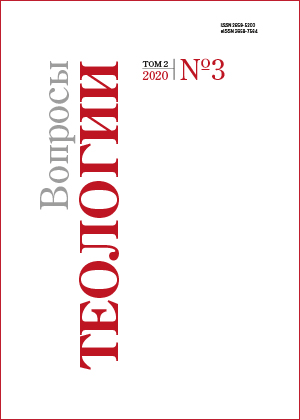The educational program in theology at the university: Integration of knowledge and pedagogical conditions for its implementation
DOI:
https://doi.org/10.21638/spbu28.2020.308Abstract
The article problematizes the search for the principles to create and implement the educational program in theology at the university, taking into account the specifics of the Eastern Christian theological tradition. The need for integrative and sociallyoriented approaches that allow students to authentically perceive the essence of Orthodox theology, expressed in the unity of Eastern Christian speculation and moral attitude towards life, is substantiated. Taking into consideration the synergistic nature of theological knowledge and its value-worldview capabilities, the author identifies a number of fundamental theoretical and methodological approaches for the development of the educational program and the corresponding goals of its implementation. The formation of a personal value-semantic conceptual system of a young person as a “super-task” is emphasized. Developing personal meanings with a focus on values, as they are presented in the Holy Scriptures and the patristic heritage, is a great pedagogical task, which should include the methodology of the so-called “existential cognition,” orienting a person to coexistence and one’s spiritual foundations. The author illustrates that in theological education, the information-cognitive approach, even with all its innovations, must be supplemented by an appeal to the issue of personal coexistence. Many years of the author’s practical experience in the field of education made it possible to identify a number of pedagogical conditions for such conjugation presented in the subject-semantic model of pedagogical integration of knowledge.
Keywords:
Eastern Christian tradition, existential cognition, subject-semantic learning, integration of knowledge, social service
Downloads
References
References
Downloads
Published
Issue
Section
License
Articles of "Issues of Theology" are open access distributed under the terms of the License Agreement with Saint Petersburg State University, which permits to the authors unrestricted distribution and self-archiving free of charge.




